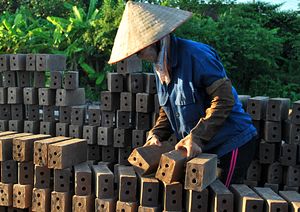As the deadline for launching the ASEAN Economic Community (AEC) nears, its critics are finding their voice. That voice is becoming louder and casting doubts over the readiness of the future trading bloc.
The latest warnings have emanated from Vietnam, Indonesia and Malaysia, where authorities and business leaders worry that a potential market of 620 million people with a combined GDP worth $2.3 trillion might be falling short of the hype.
Cao Quang Dai, of Vietnam’s Department of Vocational Training, recently stressed that competition for jobs would increase once the AEC was introduced by the end of 2015 with a free flow of skilled labor within the Association of Southeast Asian Nations (ASEAN).
Under-qualified laborers could be out of work, which he added would pose a big challenge for his country’s training systems, adding that Vietnamese laborers had poor “soft skills” in terms of teamwork and foreign language skills.
His warning came as the American Malaysia Chamber of Commerce (AMCHAM) announced that 52 percent of respondents in its 2015 ASEAN Outlook Survey believed ASEAN will not reach its AEC goals until 2020 or later.
Only four percent of the 588 executives surveyed from small, medium and large U.S. companies operating within ASEAN thought it was likely that ASEAN’s goals for a fully integrated community by the end of 2015 would be met.
Those goals include a single market and production base within a highly competitive, equitable economy, fully integrated into the global economy.
Despite the widespread cynicism, 81 percent of those surveyed – between May 5 and June 5 – believed that ASEAN integration was important for their business.
AMCHAM executive director Anne Marie Brooks said only half the companies surveyed had put in place an ASEAN regional strategy based on the AEC, adding this was perhaps due to the slow pace of regional integration.
In Indonesia, Industry Minister MS Hidayat sounded a different warning, saying his country must improve the quality of its products if it is to compete at home and in international markets amid heavy regional rivalry once the AEC is launched.
“If we do not improve the quality of our products immediately, then we will not be able to compete with foreign products entering the domestic market,” Hidayat was quoted as saying by the Antara news agency.
He noted that that Indonesia was home to 50 percent of the entire ASEAN population, making it a large market for regional goods.
“A lot of foreign products will enter the market and customers will only buy high-quality ones,” he said adding Indonesian exports had increased by 10 percent over the last five years while imports had grown by a sharper 16 percent.
Their concerns were aired following the release of a joint report by the International Labor Organization (ILO) and the Asian Development Bank (ADB) forecasting the AEC could create more than 60 million high, medium and low skilled jobs.
But it also warned the 10 members of ASEAN had to act decisively in creating a cushion for the poor and unskilled as the benefits of the trading bloc would be uneven and that its success would be determined by how much the ordinary men and women in the region stood to benefit.
Other major issues include a lack of completed infrastructure projects, particularly in the Philippines, where an inability to get major engineering projects off the ground has cast a pall over the presidency of Begnino Aquino.
In Cambodia, unfinished projects are still creating problems. This includes the all-weather Trans-Asia Highway, which remains incomplete despite repeated promises from the government that the few kilometers of tarmac needed to connect Singapore, Malaysia and Thailand with Vietnam and China would be finished soon.

































